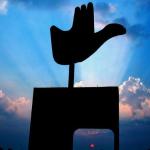A lot has happened since George Friedman published his America’s Secret War: Inside the Hidden Worldwide Struggle Between America and Its Enemies in 2003 (with a paperback edition in 2005). Still, Friedman’s book is the most satisfying treatment of recent American history that I’ve found. Founder and director of the private intelligence organization, Stratfor, Friedman speaks with authority, clarity, and balance.
The early chapters of his book examine the rise of al Qaeda and the strategy behind 9/11. Though he disputes the claim that the US created al Qaeda, he argues convincingly that the US created the conditions in which al Qaeda would be created. Simplified, the story is this:
As part of Cold War policy, the US (from Carter, and more heavily under Reagan) supported the mujahideen “freedom fighters” in Afghanistan during their war against the Soviet Union. This had several fateful long-term effects. Mujahideen fighters were recruited from all over the Islamic world; thus, the US helped create a pan-Islamic group of battle-hardened men who had been trained and equipped by the US. They were devout Muslims who knew how to handle modern military technologies. Plus, they relied on US intelligence in their war against the Soviets, and so they learned how US intelligence works – began to understand its habits and its weaknesses. Perhaps most importantly, the mujahideen won, giving Islam its first major victory over a Western power in centuries.
When the war was over, none of the moderate Islamic nations wanted the mujahideen back. They were too dangerous to bring home. This reinforced the perception among the mujahideen that the major Islamic powers were corrupt, compromised hypocrites who should be replaced with genuine Islamic rulers. Al Qaeda was formed as an effort to restore the Caliphate, a unified international Islamic order. Fighting the US was necessary in combating other Muslims, since those Muslims were propped up by the Christian US. But the US was not the main target. Friedman write, “Al Qaeda was not motivated by hatred of the United States, American popular culture, or American democracy. Its focus, instead, was on the Islamic world and its governments. Al Qaeda viewed the United States as the main Christian global power. As such, it had assumed a position as guarantor of existing regimes in the Islamic world.”
9/11 was, Friedman shows, part of that strategy. Bin Laden wanted to accomplish several things: He wanted to strike a blow against the US that would give Muslims hope that they could challenge Western powers and be victorious; he wanted to do something that would be massive enough to provoke a US attack, which, in turn, would lead to a groundswell of support for al Qaeda’s agenda within the Islamic world; he wanted to show Muslim nations that the US was vulnerable. Thus, 8/11 was “not meant to sent a message to the United States. The primary audience was the Islamic world. Bin Laden viewed the United States as an actor that could be manipulated into behaving as Al Qaeda wanted.”















